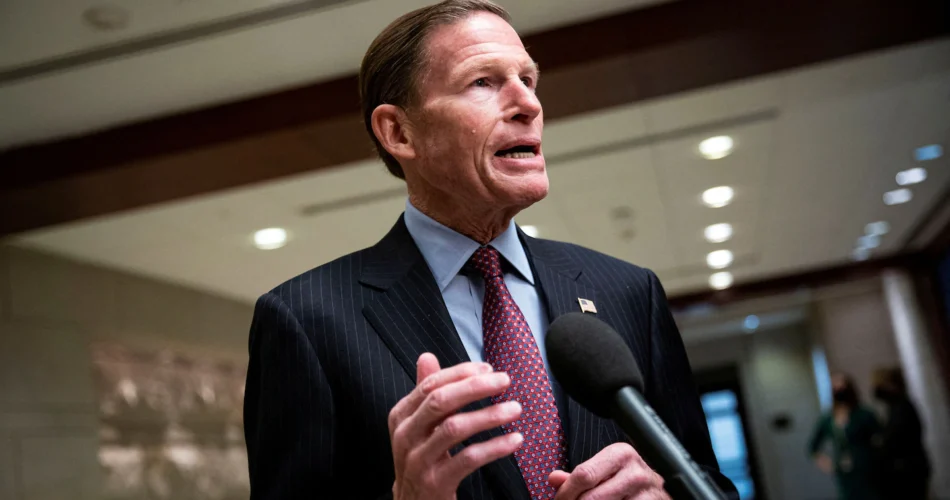The bill is “calibrated to really stop the most detestable and despicable kinds of child abuse involving really horrific pornographic images that follow these kids all their lives,” said Sen. Richard Blumenthal (D-Conn.), who co-sponsored the legislation with Sen. Lindsey O. Graham (R-S.C.). The bill has been backed by lawmakers on both sides of the political spectrum, as well as groups representing law enforcement and sexual exploitation survivors.
But unlike some recent antitrust bills that have won the backing of some technologists, the bill’s revival has reignited a battle over the future of Internet regulation and online speech. Prominent technologists, industry groups, civil rights advocates and LGBTQ interest groups have aggressively campaigned against it, warning that the proposal threatens to erode consumers’ privacy and could have a chilling effect on free expression online.
It has also created strange bedfellows, as groups reliably in favor of limiting the power of tech giants in antitrust and privacy stand alongside industry groups to fight the bill.
“Proponents want to frame this as protecting children verses the Internet,” said India McKinney, director of federal affairs at the Electronic Frontier Foundation, a nonprofit focused on digital civil liberties. “The way we see it as this bill still won’t protect children against really horrible things, and will hurt additional groups of people.”
Technologists and advocates have warned that the bill could be used to harm strong encryption, security technology that shields the contents of communications from the platform hosting the messages. While law enforcement officials suggest the technology is a boon to criminals, including child predators, who can use it to evade detection, privacy advocates argue it’s a crucial protection for users online.
The law could discourage companies from deploying encryption or even allow for prosecutors to use an offer of encryption as evidence that a company is negligent in addressing child safety, said Riana Pfefferkorn, a research scholar at the Stanford Internet Observatory.
It will “pave the way for 50 state attorneys general to go after encryption,” Pfefferkorn said. “The goal of this is to make sure that companies can be punished at the state level for providing encryption.”
Blumenthal said in an interview that lawmakers incorporated these concerns into revisions, which prevent the implementation of encryption from being the sole evidence of a company’s liability for child porn. But he said lawmakers wouldn’t offer a blanket exemption to using encryption as evidence arguing companies might use it as a “get-out-of-jail-free card.”
Opponents of the legislation also warn that in attempting to stamp out posts exploiting children, companies may go too far and also take down speech that is legal. They point to FOSTA-SESTA, a previous carve out of Section 230 targeting sex trafficking, which led to companies taking down broad swaths of sexual content, with negative impacts on both sex workers and the LGBTQ community. Companies may remove posts from marginalized groups like transgender youth to bolster themselves against the Earn It Act, Pfefferkorn said.
The Senate Judiciary Committee will weigh the Earn It Act advancing two competition bills targeting the tech sector on bipartisan votes. Lawmakers on the committee are increasingly seeking to move legislation that can appeal to members of both parties that are worried about the power and influence of tech giants.
Though the parties are largely polarized when it comes to online speech, child safety has emerged as an area they’ve been willing to work together. In 2020, the Earn It Act advanced through the same committee but was never passed by the full Senate. It remains unclear if the legislation has the support needed to become law, as Democrats have a flurry of competing priorities they want to advance before the midterm elections. Blumenthal said he plans to seek support from the Justice Department and White House once it clears the committee.
The National Center on Sexual Exploitation, a supporter of the bill, pushed back on the security and free speech concerns, arguing it was urgent to pass legislation. According to the organization’s website, it has also advocated for the removal of on-demand pornography from hotel room televisions and for state resolutions declaring pornography a public health crisis.
“The reality is we’ve waited since the dawn of Internet age to help protect children online,” said CEO Dawn Hawkins. “These platforms have major flaws. We need tech companies to be partners in creating safe spaces online.”
Source link



